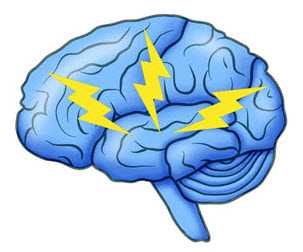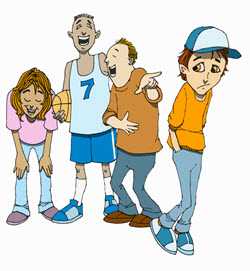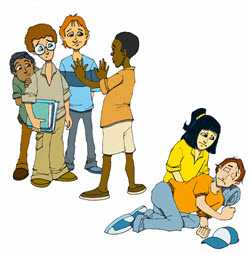Epilepsy Is Electric!
What Is Epilepsy?
Epilepsy is a medical condition that affects the brain. It causes a person to have recurring seizures, meaning two or more, over time.

What Is a Seizure?
A seizure happens when brain cells misfire and stop working the way they are supposed to, sending too many electrical signals at one time to your brain. You might think about it like an electrical storm. These uncontrolled electrical signals cause a change in awareness, movement, or sensation. You might hear it called a fit, spell, or convulsion.
What Do Seizures Look Like?
- There are more than 30 different types of seizures.
- A person with epilepsy can have more than one type of seizure.
- Sometimes it is hard to tell when a person is having a seizure. A person having a seizure may seem confused or look like they are staring at something that isn’t there.
- Other seizures can cause a person to fall, shake, and become unaware of what’s going on around them.
Facts About Epilepsy
- Epilepsy can occur at any age.
- Children, teens, and adults of all races and ethnic backgrounds can have epilepsy.
- Epilepsy is sometimes inherited.
- Epilepsy can be caused by anything that hurts the brain including head injuries, infections, and brain tumors.
- About 3 million people in the United States have epilepsy.
- Epilepsy is the fourth most common medical condition affecting the brain.
- Epilepsy currently affects more than 460,000 children younger than age 18 in the United States.
- Picture a school with 1,000 students—at least 6 students would have epilepsy.
- Most kids with epilepsy take medicine to prevent seizures and some use other kinds of treatment, like a special diet.
- Kids with epilepsy play sports, date, hang out, and want to be treated just like anybody else.
- Teens who have epilepsy, but do not have seizures can get a driver’s license.
Stigma and Bullying
Think Before You Speak…

Don’t make fun of someone with epilepsy by imitating their seizures—you wouldn’t want someone imitating you. Remember, it’s a medical condition, just like asthma.
Sometimes epilepsy medicines can cause a person to feel sleepy, gain weight, or have bad acne. So that guy falling asleep in class might not be a total slacker— there might be something else going on.
Bullying
Having epilepsy is no different than any other medical problem, and people with epilepsy shouldn’t be treated any differently.
If you see anyone being bullied or teased because of their epilepsy, or any other reason:
- Tell an adult.
- Support your friend being bullied.
- Stand up to the person doing the bullying.
If You Are Being Bullied…
ALWAYS
|
DO NOT
|
First Aid
We never know when we might need to provide support or first aid to someone having a seizure. Let’s learn what we should and should not do.

First Aid for Generalized Seizures
When most people think of a seizure, they think of a generalized seizure, also called a tonic clonic or grand mal seizure. In this type of seizure, the person may cry out, fall, shake, and become unaware of what’s going on around them.
Here are things you can do to help someone who is having this type of seizure:
- Stay calm.
- Ease the person to the floor.
- Turn the person gently onto one side to help them breathe.
- Put something soft and flat, like a folded jacket, under his/her head.
- Remove eyeglasses.
- Loosen ties or anything around the neck that may make it hard to breathe.
- Clear the area around the person of anything hard or sharp to prevent injury.
- Time the seizure and call 911 if the seizure lasts longer than 5 minutes.
- Explain to others what is happening.
- Stay until the person is fully aware and offer help.
- Be a friend when the seizure is over.
Should I Call 911?
Call 911 if any of these things happen:
- The person is hurt during the seizure.
- The seizure happens in water.
- The seizure lasts longer than 5 minutes.
- The person has another seizure soon after the first one.
- The person has a health condition like diabetes or is pregnant.
What Not to Do
There are a few things that you should never do while a person is having a seizure.
NEVER…
- X Put anything in the person’s mouth.
- X Hold down or restrain the person.
- X Try to give them medicine.
- X Leave the person on their back.
- X Tease someone who just had a seizure.
First Aid for Any Type of Seizure
Sometimes it is hard to tell when a person is having a seizure. A person having a seizure may seem confused or look like they are staring at something that isn’t there.
Here are things you can do to help someone who is having any type of seizure:
- Speak calmly.
- Move things out of the way and keep them away from streets, stairs, and furniture.
- Time the seizure and call 911 if the seizure lasts longer than 5 minutes.
- Explain to others what is happening.
Are Kids With Epilepsy Different?
People who have epilepsy may need to be careful in places where they could get hurt if they have a seizure, like a high place or in the bathtub. And they may not be able to do certain sports, such as boxing or scuba diving. But other than that, most people with epilepsy can live normal lives and do what everyone else does. They can go to school, attend college, and get jobs. They can get married and have children.

However, if epilepsy doesn’t limit a person’s ability, it can make a kid feel different. So, if you know somebody who has it, you can help a lot just by being a good friend.
What do these famous people have in common? You guessed it, epilepsy!
- Vincent Van Gogh (1853–1890)—Dutch painter
- Harriet Tubman (1822–1913)—Abolitionist, humanitarian, Civil War Union spy
- Theodore Roosevelt (1858–1919)—26th President of the United States, author, explorer, naturalist, soldier, Nobel Peace Prize recipient
- Neil Young (1945–)—Musician, singer-songwriter, producer, humanitarian
- Danny Glover (1947–)—Actor, activist
- Sir Elton John (1947–)—Singer-songwriter, composer, pianist
- Bobby Jones (1951–)—Former professional basketball player, Denver Nuggets, Philadelphia 76ers
- Prince (1958–2016)—Singer-songwriter, multi-instrumentalist, actor
- Florence Griffith-Joyner, AKA: Flo-Jo (1959–1998)—Olympic track star
- Hugo Weaving (1960– )—Actor (The Hobbit and The Lord of the Rings trilogies, The Matrix trilogy)
- Rick Harrison (1965–)—Businessman, reality TV personality (Pawn Stars)
- Adam Horovitz, AKA: Ad-Rock (1966–)—Musician, rapper, guitarist, producer, actor
- Dwayne Carter, Jr., AKA: Lil Wayne (1982–)—Singer-songwriter, rapper, record executive
- Jason Snelling (1983–)—Former professional football player, Atlanta Falcons
Questions Answered (Q&A)
Can a person die from epilepsy?
It is very rare for a person to die from having a seizure. Most seizures end naturally on their own after a few seconds or minutes. There is a greater risk of injury or death if the person has a seizure in water, near heights, or while driving a car. Rarely, a person may fall in such a way that his/her breathing is blocked, or he/she may suffer a heart attack a result of the stress of a seizure. In very rare cases, a person with epilepsy dies suddenly for no apparent reason. Most cases of death involving epilepsy happen as a result of a series of untreated, nonstop seizures. People suffering repeated, convulsive seizures over a short period of time should get immediate medical care.
Will someone with epilepsy always have it?
That depends. Some people’s epilepsy goes into remission (and stops) after a few years. Others will always have seizures unless they take medicine to prevent them.
Is it safe for a person with epilepsy to play sports?
Most people with epilepsy can safely play a wide variety of sports. But their ability to participate depends somewhat on the specific sport, the type of seizure he/she has, and how often the seizures occur. Sports like track, basketball, tennis and field sports are generally not a problem. Swimming alone is not a good idea, at any time, for anyone with a seizure disorder. People with epilepsy should always swim with someone who knows about their epilepsy and is a good enough swimmer to help if a seizure occurs. Wearing protective helmets is important for anyone who is cycling or playing football or baseball, even if he or she doesn’t have epilepsy.
Is there a cure for epilepsy?
No, not yet. Medicines don’t cure epilepsy the way an antibiotic can cure an infection. Medicines can get seizures under control, but they only work if taken regularly. But that doesn’t mean that a person will have to take them for the rest of his/her life.
Is epilepsy hereditary?
The role of genes or heredity in epilepsy is quite small. If one parent has epilepsy that has no known cause, then the risk is about 4% that one of his/her children will have epilepsy. If both parents have epilepsy, that percentage goes up slightly.
What causes epilepsy?
It’s hard to say. In most cases (about 70%), doctors don’t know why a person has epilepsy. However, there are many things that can lead to epilepsy, including problems in development before birth, severe infections that involve the brain, a head injury, poisoning, or certain genetic factors.
Can flashing lights or video games cause seizures?
Some people are photosensitive, which means they may have seizures if a light flashes at a certain rate in their eyes, or if they look at flashing images of light and dark. The light that flashes in video games is not usually fast enough to cause seizures. However, the flashing lights of a strobe light might cause a seizure. If you’ve had an EEG test, they probably did a photosensitivity test as well. If you didn’t have a seizure then flashing lights or flashing video game images may not be a problem for you.
What are the medical treatments for epilepsy?
People with epilepsy take daily medicine to control their seizures. In addition, there are other treatments that can be used successfully with some people, such as a special diet. Ask your doctor what treatment will work best for you.
Facts vs. Myths About Epilepsy
A person can swallow their tongue during a seizure.
MYTH—Your tongue is attached and isn’t going anywhere during a seizure.
People die from having a seizure.
FACT—Rarely, people will die from having a seizure.
Kids with epilepsy are all in special education.
MYTH—Most kids with epilepsy attend regular classes.
Only kids can have epilepsy.
MYTH—People of all ages, races, and ethnic backgrounds can have epilepsy.
Epilepsy can be caused by anything that hurts the brain including head injuries, infections, and brain tumors.
FACT—Sometimes brain injuries can cause epilepsy. You can protect yourself from brain injury by wearing a helmet when riding a bike and playing sports.
Genetics sometimes play a role in having epilepsy.
FACT—Epilepsy can run in the family.
You should hold someone who is having a seizure.
MYTH—Holding or restraining a person during a seizure could injure that person or yourself. If you see someone having a seizure you should: speak calmly; move things out of the way and keep them away from streets, stairs, and furniture; time the seizure and call 911 if the seizure lasts longer than 5 minutes; and explain to others what is happening.
Sometimes seizures look like day dreaming.
FACT—Sometimes a person having a seizure may look like they are daydreaming or staring at something that isn’t there.
Most seizures last a few seconds to a few minutes.
FACT—If you see someone having a seizure, time it. If the seizure lasts longer than 5 minutes, call 911.
- Page last reviewed: August 3, 2017
- Page last updated: August 3, 2017
- Content source:



 ShareCompartir
ShareCompartir